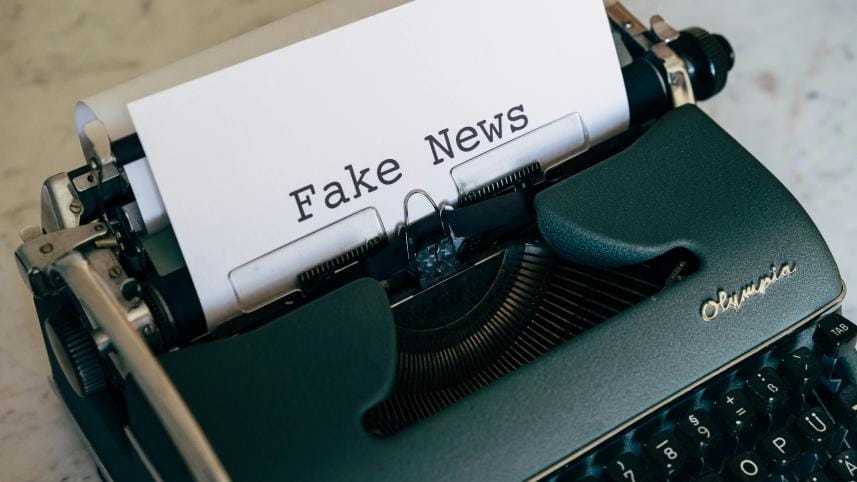How to identify fake news

Fake news existed even before the internet, but with the World Wide Web and social media, the problem has been elevated to a whole different level. Add to that the protests and volatility Bangladesh — and many other places in the world – have been witnessing, what you have is a breeding ground for fake news.
But the term itself is problematic: too broad, too vague, and overused and rotted by politicians worldwide! Words such as "misinformation" and "disinformation" and various theories and concepts have attempted to make better sense of it.
To set a context, plus for the sake of simplicity, what we mean here (in this article) is basically false information and misleading information in the guise of news or "serious" content.
With that being said, how do you go about spotting fake news?
Rely on the most reliable sources
If you can master just this, you can often easily steer away from fake news. When you come across a news story, simply check whether it is from a trusted news outlet. Reputed news organisations have a solid fact-checking process and gatekeeping. It is therefore less likely for a reputed brand to publish major inaccuracies, let alone publish totally fabricated or downright misleading content.
Not only news, if you see a status update on a Facebook group, don't mindlessly believe it or share it with others. Check multiple trustworthy news sites to verify.
Beware of imposters
Getting into murky waters now, there is the concept of imposter content, imposter site, imposter account etc., where the source tries to mimic a trustworthy brand. So, for fake news, it can be about pretending to be a reputed news organisation which many people are familiar with, let's say by adopting a similar name or URL.
Hence, especially when in doubt, we should carefully read the name of the source and see its quality and nature of news, to determine whether it is the actual one that we trust.
Visit fact-checkers
There are websites and social media pages that label and debunk fake news. A simple online search will take you to these platforms. They tell you what's been circulating online, and then explain what actually happened — for example, an old video being misused by republishing it with a false caption that would appear relevant to the current times.
Don't drink old wine in a new bottle
Continuing with the example, you can come across videos and reels with false or misleading captions. A video, reel, and image may be "real", but it does not necessarily mean that the caption is too. In other words, any content is as real as the caption itself.
You may come across a reel of a harrowing incident or a mob attack which happened a few years ago but with a caption framing it as something recent.
A good way to deal with it is to be politically aware and use your evaluation before sharing, but most importantly, once again, to verify from multiple trustworthy sources.
Tackle the threat of deep fakes
Artificial Intelligence can be scary! With technological tools, fake images/videos/audio clips can feature people doing things they never did or saying things they never said.
However, while deep fakes are getting better day by day, there can be glitches or inconsistencies. Does the number of fingers of the person add up? Does the skin look too smooth? Do the lip movements seem natural and sync with the voice? And so on.
There are deep fake detectors you can find online, but tell-tale signs and your judgment on the believability of the content can take you a long way, along with — sorry for the repetition — crosschecking from a few trusted brands.
Don't get too excited by headlines
Read the whole story before believing it or sharing it with others. Headlines can be devised to make the audience want to click, even at the cost of making the title misleading. Similarly, video titles, thumbnail images, captions, etc. may be exaggerated, dramatic, or carry a shock value.
Cynicism is perhaps not a good trait to have, but when it comes to the reliability of information, a bit of scepticism is preferred!
Have a funny bone
Satire, as you already know, is basically a genre of content that uses humour, ridicule, etc., to criticise something or someone in society or politics. And it is perfectly fine; in fact, entertaining as well. However, some people may mistakenly perceive satire as "real" news. Trustworthy media organisations publish satires too.
We should improve our media literacy in the long run. For now, when in doubt, one should at least consider how believable the story is, crosscheck, and just apply common sense with a bit of sense of humour as well!



 For all latest news, follow The Daily Star's Google News channel.
For all latest news, follow The Daily Star's Google News channel.
Comments